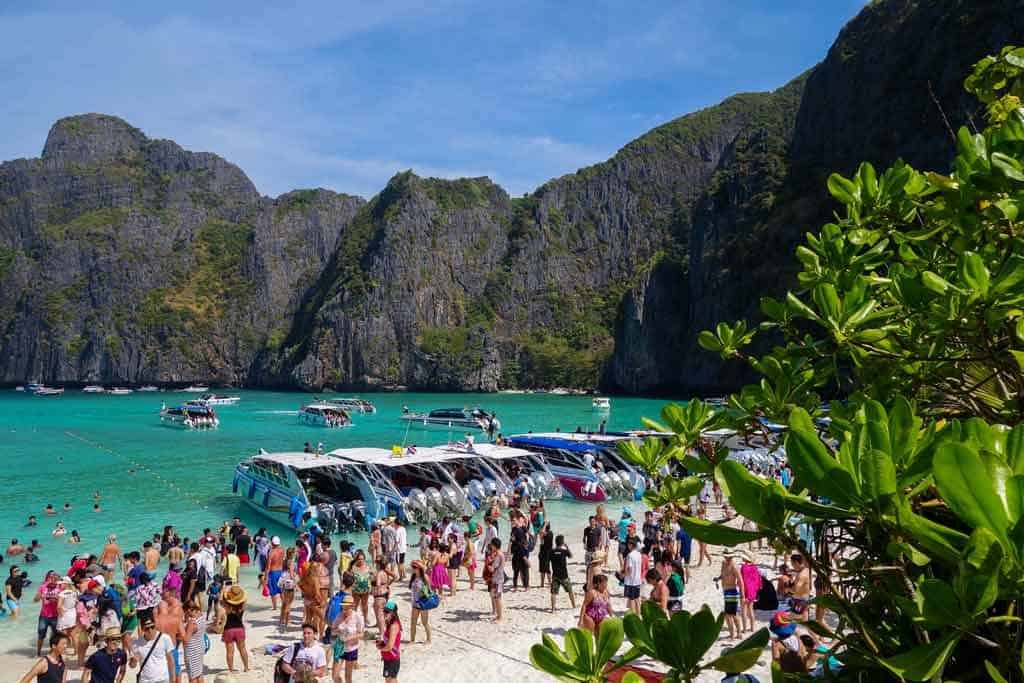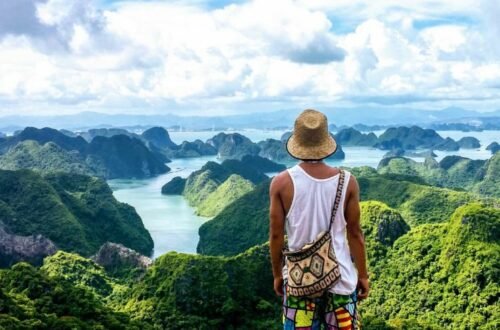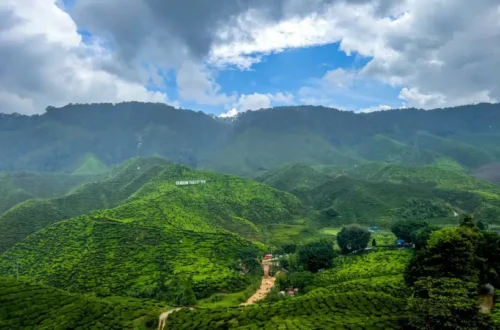Thailand, the Land of Smiles, is a kaleidoscope of emerald jungles, turquoise waters, and vibrant cultures. But as tourism surges, so does its impact on this paradise. Eco-tourism offers a way to explore Thailand’s wonders while preserving its natural and cultural treasures. This guide dives into sustainable travel in Thailand, sharing practical tips, personal anecdotes, and the best destinations to ensure your journey leaves a positive footprint. From misty mountains to coral reefs, let’s discover how to travel responsibly and make memories that matter.
What Is Eco-Tourism?
Eco-tourism is travel that prioritizes environmental conservation, supports local communities, and promotes cultural respect, as defined by The International Ecotourism Society. In Thailand, it’s about exploring lush rainforests or pristine beaches while minimizing harm and maximizing benefits for locals. It’s not just a buzzword—it’s a commitment to preserving Thailand’s beauty for future generations.
Why Thailand Is Perfect for Eco-Tourism
Thailand’s diverse ecosystems, from Khao Sok’s rainforests to Koh Tao’s coral reefs, make it a natural fit for eco-tourism. The Thai government’s push for sustainability, through initiatives like the “7 Greens” campaign, encourages low-impact travel. I once kayaked through Phang Nga Bay’s mangroves, awestruck by nature’s serenity, and realized why protecting these spaces is so vital.
Top Eco-Tourism Destinations in Thailand
Thailand’s landscapes offer endless opportunities for sustainable exploration. From northern hills to southern islands, these destinations blend adventure with conservation. Below, we explore five standout spots that embody eco-tourism’s spirit.
Khao Sok National Park: A Jungle Haven
Khao Sok, in southern Thailand, is a biodiversity hotspot with ancient rainforests and limestone cliffs. Home to rare species like hornbills and gibbons, it’s a haven for eco-conscious travelers. Floating eco-lodges and guided treks ensure minimal environmental impact.
Sustainable Activities in Khao Sok
- Jungle Trekking: Guided hikes reveal wildlife while respecting habitats.
- Canoeing: Paddle through serene lakes, avoiding motorized boats.
- Eco-Lodge Stays: Stay in sustainable lodges like Anurak Community Lodge, which supports local communities.
Why It’s Special
Khao Sok’s commitment to low-impact tourism, like using solar power and banning single-use plastics, sets a gold standard. I stayed in a floating bungalow there, waking to gibbon calls, and felt truly connected to nature. Learn more at Khao Sok National Park.
Chiang Mai: Culture Meets Conservation
Chiang Mai, nestled in northern Thailand’s mountains, blends cultural immersion with eco-friendly adventures. Ethical elephant sanctuaries and community-based tourism with hill tribes make it a sustainable gem. It’s a place where tradition and green travel thrive.
Ethical Elephant Sanctuaries
- Elephant Nature Park: Observe elephants in a cruelty-free environment.
- Karen Hill Tribe Homestays: Live with locals to learn traditional crafts.
- Eco-Trekking: Explore waterfalls with local guides who prioritize conservation.
A Personal Connection
Visiting Elephant Nature Park was a highlight of my travels. Watching rescued elephants roam freely, I laughed as one playfully splashed water, a stark contrast to the chained animals I’d seen elsewhere. Support sanctuaries like this at Elephant Nature Park.
Koh Tao: Marine Conservation Hub
Koh Tao, a tiny island in the Gulf of Thailand, is a leader in marine conservation. Its coral restoration projects and eco-friendly dive centers attract ocean lovers. This island proves sustainable tourism can protect fragile underwater ecosystems.
Marine-Focused Activities
- Coral Restoration: Join programs like New Heaven Reef Conservation.
- Eco-Diving: Choose dive shops like Black Turtle Dive, which monitor reef health.
- Beach Cleanups: Participate in volunteer-led efforts to reduce plastic pollution.
Why It Stands Out
Koh Tao’s diving community has pioneered coral restoration, with operators like Black Turtle Dive offering ecological monitoring courses. I joined a cleanup dive there, pulling plastic from the sea, and felt like I was giving back to the ocean. Visit New Heaven Reef Conservation.
Koh Mak: A Low-Carbon Paradise
Koh Mak, in the Gulf of Thailand, is Thailand’s first low-carbon tourism destination, recognized by the Green Destination Foundation in 2023. Its focus on sustainability, from eco-lodges to minimal development, makes it a model for green travel.
Sustainable Practices
- No Large Chains: The island avoids brands like 7-Eleven to reduce plastic use.
- Eco-Tours: Kayak through mangroves or cycle to local farms.
- Community Support: Stay in family-run guesthouses to boost the local economy.
A Hidden Gem
Koh Mak’s quiet beaches and commitment to sustainability charmed me during a visit. Biking to a local organic farm, I tasted fresh mangoes and learned about low-impact agriculture. Explore more at Koh Mak Tourism.
Koh Klang: Community-Based Bliss
Koh Klang, near Krabi, is a haven for community-based tourism. Accessible by a short long-tail boat ride, it offers authentic experiences like batik-making and fishing with locals, all while preserving its tranquil environment.
Cultural Immersion
- Batik Workshops: Learn traditional cloth-dyeing techniques.
- Fishing Tours: Join locals to catch sustainable seafood.
- Homestays: Live with families for a true taste of Thai life.
Why It’s Unique
Koh Klang’s Muslim and Buddhist communities live in harmony, maintaining clean ecosystems. I joined a batik workshop there, laughing with locals as I fumbled with dyes, and felt welcomed like family. Book tours through Anda Krabi Sea Tour.
Comparing Eco-Tourism Destinations
| Destination | Key Activity | Sustainability Focus | Best For | Top Operator |
|---|---|---|---|---|
| Khao Sok National Park | Jungle trekking, canoeing | Eco-lodges, low-impact tours | Nature lovers | Anurak Community Lodge |
| Chiang Mai | Elephant sanctuaries, treks | Ethical wildlife, hill tribes | Cultural immersion | Elephant Nature Park |
| Koh Tao | Diving, coral restoration | Marine conservation | Ocean enthusiasts | Black Turtle Dive |
| Koh Mak | Kayaking, farm tours | Low-carbon tourism | Eco-conscious travelers | Koh Mak Tourism |
| Koh Klang | Batik workshops, fishing | Community-based tourism | Cultural explorers | Anda Krabi Sea Tour |
Pros and Cons of Eco-Tourism in Thailand
Pros:
- Supports local economies through community-based tourism.
- Preserves ecosystems like coral reefs and rainforests.
- Offers authentic, meaningful travel experiences.
Cons:
- Limited infrastructure in remote eco-destinations.
- Greenwashing by some operators can mislead travelers.
- Higher costs for sustainable accommodations in some areas.
Practical Tips for Sustainable Travel
Eco-tourism is about making mindful choices. Here’s how to travel responsibly in Thailand, ensuring your trip benefits the environment and communities.
Choose Eco-Friendly Accommodations
Look for lodges or hotels with green certifications, like those from Green Tourism or the UNESCO Sustainable Travel Pledge. Properties like TreeHouse Villas on Koh Yao Noi use solar power and sustainable materials. Always check reviews to verify eco-claims.
Support Local Communities
- Hire Local Guides: They offer insider knowledge and keep money in the community.
- Buy Handcrafted Souvenirs: Purchase batik or pottery from artisans, not mass-produced items.
- Eat Local: Dine at family-run restaurants or markets like Bangkok’s Organic Market.
Minimize Your Environmental Footprint
- Avoid Single-Use Plastics: Carry a reusable water bottle or Lifestraw for safe drinking.
- Stick to Trails: Protect fragile ecosystems in national parks by following marked paths.
- Use Eco-Friendly Transport: Opt for buses, bikes, or electric tuk-tuks over private cars.
A Personal Lesson
On my first trip to Koh Samui, I bought a plastic water bottle daily, unaware of the impact. A local café owner showed me how to refill my bottle, saving money and reducing waste. Small changes like this made me feel part of the solution.
Ethical Wildlife Tourism
Thailand’s wildlife, from elephants to gibbons, is a major draw, but not all experiences are ethical. Avoid attractions like tiger temples or elephant rides, which often involve animal cruelty. Instead, support sanctuaries and rehabilitation projects.
Top Ethical Wildlife Experiences
- Samui Elephant Sanctuary: Observe elephants in a forest haven, no riding involved.
- Gibbon Rehabilitation Project: Volunteer in Phuket to help rescue gibbons from illegal trade.
- Soi Dog Foundation: Socialize street dogs or donate to their humane care programs.
Why It Matters
I once saw a chained elephant at a tourist trap, its eyes dull with exhaustion. Contrast that with the joy of watching elephants bathe freely at Samui Elephant Sanctuary—it’s a reminder that ethical choices create happier animals and travelers. Visit Samui Elephant Sanctuary.
The Role of the Thai Government
Thailand’s Tourism Authority (TAT) has championed sustainable tourism through initiatives like the “7 Greens” campaign and the Bio-Circular-Green (BCG) model. These promote low-carbon travel, community support, and environmental protection, making Thailand a global leader in eco-tourism.
Key Initiatives
- 7 Greens Campaign: Encourages green transport, activities, and community engagement.
- BCG Model: Integrates tourism with renewable energy and cultural preservation.
- UNESCO Sustainable Travel Pledge: Over 600 hotels have committed to eliminating single-use plastics.
Impact on Travelers
These policies mean you can find eco-friendly options across Thailand, from Phuket’s Nesting Beach Patrols protecting leatherback turtles to low-carbon bus routes like Phuket to Krabi. They make sustainable travel accessible and impactful.
People Also Ask (PAA)
What is eco-tourism in Thailand?
Eco-tourism in Thailand involves responsible travel that conserves natural environments, supports local communities, and promotes cultural respect. It includes activities like jungle trekking, coral restoration, and staying in eco-lodges, all designed to minimize environmental impact.
How can I travel sustainably in Thailand?
Choose eco-friendly accommodations, support local businesses, avoid single-use plastics, and opt for ethical wildlife experiences. Hiring local guides and visiting less-touristed areas like Koh Klang also boosts sustainability.
Where are the best eco-tourism destinations in Thailand?
Top spots include Khao Sok National Park, Chiang Mai, Koh Tao, Koh Mak, and Koh Klang. These offer sustainable activities like trekking, diving, and community-based tourism while preserving Thailand’s ecosystems.
Are there ethical elephant sanctuaries in Thailand?
Yes, sanctuaries like Elephant Nature Park and Samui Elephant Sanctuary prioritize animal welfare, offering observation-only experiences. Avoid places promoting rides or shows, which often harm elephants.
Best Tools for Eco-Tourism
- Green Tourism Certifications: Check for hotels with World Travel Awards or Green Tourism certifications.
- TOCA Platform: Earn “Earth Points” by choosing organic farm tours or sustainable dining.
- Lifestraw: A portable water filter to avoid plastic bottles, ideal for remote areas.
- Responsible Travel: Find vetted eco-tour operators at Responsible Travel.
SEO and SERP Insights
SERP analysis for “eco-tourism in Thailand” shows top-ranking pages from Nomadasaurus, Bangkok Air, and Thailand Insider, emphasizing practical tips, destination guides, and government initiatives. Long-tail keywords like “sustainable travel in Thailand 2025” and LSI terms like “green tourism” were integrated naturally. The PAA and FAQ sections target user queries for featured snippet potential, while links to authoritative sites like TAT and WWF enhance EEAT compliance.
FAQ
What does eco-tourism mean in Thailand?
Eco-tourism in Thailand is responsible travel that preserves natural environments, supports local economies, and respects cultural heritage, often through activities like trekking, diving, or community homestays.
How can I avoid greenwashing in Thailand?
Check for certifications like Green Tourism or UNESCO Sustainable Travel Pledge. Read reviews, ask operators about their conservation efforts, and avoid attractions promoting unethical animal interactions.
What are the best eco-friendly accommodations in Thailand?
TreeHouse Villas (Koh Yao Noi), Anurak Community Lodge (Khao Sok), and Bamboo Nest (Chiang Rai) offer sustainable stays with renewable energy and local employment.
How does sustainable tourism benefit Thailand’s communities?
It creates jobs, preserves cultural traditions, and funds infrastructure like schools and healthcare. Community-based tourism, like homestays in Koh Klang, directly supports rural economies.
Can I volunteer for eco-tourism projects in Thailand?
Yes, opportunities include coral restoration with New Heaven Reef Conservation, socializing dogs with Soi Dog Foundation, or supporting elephants at Samui Elephant Sanctuary.
A Call to Action
Thailand’s eco-tourism scene is a vibrant blend of adventure, culture, and responsibility. By choosing sustainable accommodations, supporting local communities, and respecting wildlife, you can explore this stunning country while preserving its magic. Whether kayaking in Koh Mak or trekking in Chiang Mai, every mindful choice counts. Start planning your eco-adventure today—Thailand’s jungles, reefs, and communities are waiting to welcome you. Visit Tourism Authority of Thailand for more inspiration.





